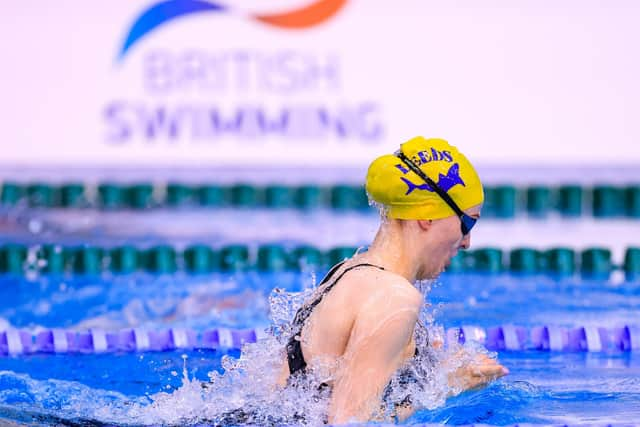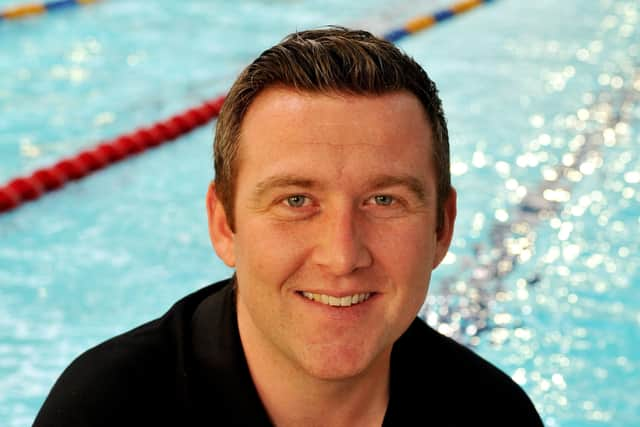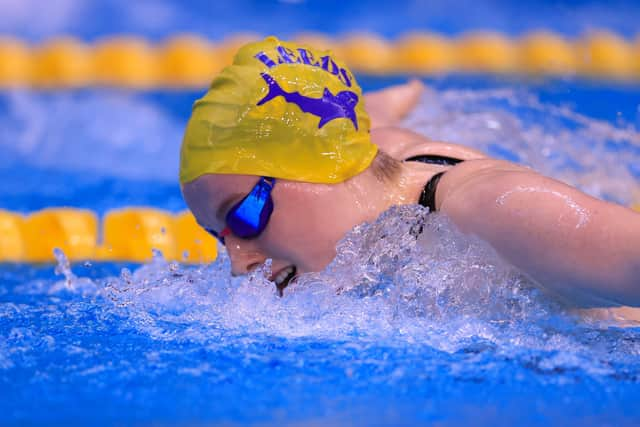City of Leeds Swimming Club emerging from Covid pandemic after strong British Championships
As swimming galas go, it was a behemoth.
The British Swimming Championships were first staged in 1946 and held anually all the way up to 2019 until the Covid pandemic forced the cancellation of the 2020 event and a change in pace to mere selection trials held in a bubble for last summer’s Tokyo Olympics.
Hence the desperation from organisers to get races on and and swimmers to get back in the pool to make up for lost time in Sheffield this past week.


Advertisement
Hide AdAdvertisement
Hide AdAppreciative of the fact that so many swimmers had missed so much competitive racing since these championships were last held in April 2019, the governing body opened the meet up to more swimmers, which meant an afternoon heats session had to be created in between the morning qualifiers and evening finals.
For the swimmers involved, from triple Olympic champion Adam Peaty at the top right the way down to the slowest backstroker, it was a welcome return to action as much as it was a selection meet for a summer of Commonwealth Games, world championships and European senior and junior events.
Dozens of clubs were represented, from the home swimmers of City of Sheffield to the Olympic superpower of Peaty’s Loughborough.
Among them, City of Leeds Swimming Club had a 20-strong group of young swimmers competing down the M1 in Sheffield, a number of them experiencing a gala of this magnitude for the first time.


Advertisement
Hide AdAdvertisement
Hide AdFor their head coach Richard Denigan it was a chance for his students to start making up for lost time.
“They’ve missed six or seven big domestic opportunities to develop,” says Denigan of the key learning posts Covid has robbed of young swimmers.
“Some of our swimmers have gone from 2019 British Summer Championships straight into a trials situation where they’re trying to get onto a European junior team.
“Some of them are 15-years-old in terms of their development, but 17/18-years-old in real life.


Advertisement
Hide AdAdvertisement
Hide Ad“You’re probably looking at seven or eight opportunities where they would have gained experience of a) being in the team dynamic, and b) at a high-level meet, under pressure to deliver on that moment.
“That experience is lost, their development is two years behind.”
With that in mind, Denigan was not putting any great pressure on his young squad in terms of results.
“You’ve got to treat it at face value,” he says. “I don’t dwell on what they’ve missed because it’s not their fault, they can’t do anything about it, so whilst they’re competing and performing to times that are of a senior standard, we still need to nurture them in terms of the experience of the arena.
Advertisement
Hide AdAdvertisement
Hide Ad“So we’re almost treating them as if it’s their last British Championships at age 13/14, but trying to accelerate their experience because they’re in a senior final against swimmers that might be a few seconds faster.
“All of a sudden they’ve gone from being a 14-year-old to suddenly being in a race with their heroes; so you’re having to play down the event.
“In our team meeting when we started the week I went back over what’s been going on in the world the last two years; people are getting shelled in Ukraine, but we’re privileged enough to be at a British Championship. Where would you rather be? So it’s about putting life into perspective.
“Just trying to keep it as level as we possibly can for them.”
Advertisement
Hide AdAdvertisement
Hide AdThe whole atmopshere of the week can only have helped a young squad.
“Any international or high-level domestic meet is great experience because they’ve got to learn to prepare themselves well, deal with pressure and deliver on the day,” continues Denigan, who joined the club in 2007.
“That takes a lot of character, it takes a lot of prep, a lot of training. We run this as a national team so the experience that they’re gaining with us will transfer if they are selected to represent their country.
“Just being in and around the Peatys of this world, Duncan Scott, James Guy, all those guys is good experience for our swimmers in terms of not panicking.
Advertisement
Hide AdAdvertisement
Hide Ad“They’re going to have to deal with that over the next couple of years if they want to get onto senior teams.
“It’s just an overall good experience that once you’re comfortable in it, you get comfortable being uncomfortable, because you know the environment.
“If you’re here for the first time you may get a few nerves because you’re not comfortable, but it’s a stepping stone to bigger things. It’s a very, very important meet.”
And City of Leeds enjoyed some success.
Leah Schlosshan and Lara Thomson finished fifth and seventh respectively in the 400m individual medley final.
Advertisement
Hide AdAdvertisement
Hide AdSchlosshan also won the 200m junior backstroke. Both have qualified for the European Junior Championships in Romania later this year.
The club has hopes butterfly specialist Isabelle Goodwin, 17, can qualify for the Commonwealth Games later this year but she unfortunately went into the meet not yet fully recovered from injury. She still managed a personal best in the 200m fly.
“Most of them have done personal best times, some of them have qualified for European Juniors, some have qualified for senior finals, so they’re propelling themselves up the senior ranks ready for the next two years towards Olympic trials,” adds Denigan.
A former City of Leeds swimmer, Leah Crisp, won the 800m freestyle in Sheffield in the colours of Bath, and in the past Leeds has produced Commonwealth Games gold medallists, like Sophie Taylor in 2014.
Advertisement
Hide AdAdvertisement
Hide AdTaylor left the sport in her early 20s, which became a trend in the wake of the Covid pandemic.
“There comes a point in their early 20s when these athletes think ‘if I’m not going to make a senior team where am I going with this, I’ve got to start working now’,” says Denigan. “‘I can no longer have my mum and dad helping me financially now’, because no one’s funded unless you’re on podium or podium potential with British Swimming.
“We’ve been lucky not to suffer that.
“The older ones we have have come back, mainly because they’ve been in university and are still in love with the sport.
“We started Covid with just short of 300 members and we came back in with something like 230. So we lost a few, but we’re back up to close to 300 again.
Advertisement
Hide AdAdvertisement
Hide Ad“All our national medallists, national finalists, international representatives, they have come back still wanting to do it with great passion, to make up for what they’ve missed out on.”
Which they were able to start doing in Sheffield last week.
Comment Guidelines
National World encourages reader discussion on our stories. User feedback, insights and back-and-forth exchanges add a rich layer of context to reporting. Please review our Community Guidelines before commenting.